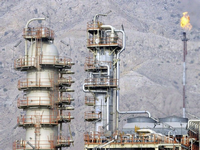There was a sense of “here we go again” last week, when the government of Georgian President Mikheil Saakashvili claimed to have suppressed an army mutiny fomented by Moscow, even as some 600 troops from several nations including the United States arrived in Tblisi for the start of a NATO-led exercise. Last August, the Georgian army began its ill-fated attack on the separatist region of South Ossetia a week after the end of a combined U.S.-Georgian exercise. Over 100 American military personnel were still in Georgia when the Russians counterattacked and swept across Georgia like a knife through butter. The […]
Caucasus Archive
Free Newsletter

President Barack Obama didn’t look into Dimitry Medvedev’s eyes and claim that he saw the Russian president’s soul at the G-20 summit in early April. But the meeting between the two leaders has potentially set the stage for a more pragmatic relationship between Washington and Moscow. Substantial policy differences still separate the two powers, but the dynamics of the U.S.-Russia relationship have shifted away from the mutual bitterness that arose out of the August 2008 war in the Caucasus. However, although energy is not a major part of the public discourse on U.S.-Russian relations, it is a latent factor that […]

For years, analysts have argued that the Nabucco natural gas pipeline — a U.S.-backed effort to transport gas from the Caspian Sea to Europe via Turkey, thus bypassing Russia — needed to accept gas from Iran if it was to be economically viable. But Iranian involvement in the project, which is intended to reduce European energy dependence on Russian gas exports, has been anathema for U.S. policymakers: Washington’s efforts to thwart Iran’s ambitions have so far overridden its desire to thwart Russia’s. That may be changing. The White House has appointed a new envoy for Eurasian Energy, Richard Morningstar, who […]
